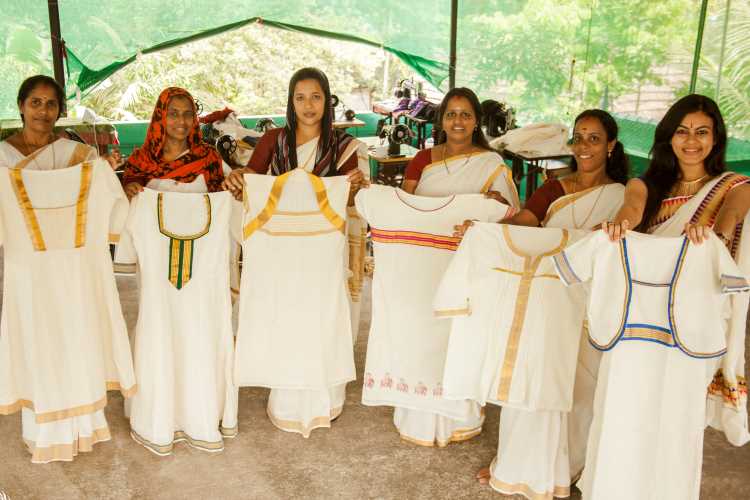By Aditi Sawant and Swati Ramanath
India has more than 8.8 million women SHGs (self-help groups) that play a transformative role in India’s rural economy. The emergence of SHGs had a telling effect on the socioeconomic position of the weaker sections of the society. The Covid-19 pandemic and the severe lockdown measures taken by some countries magnified the challenges faced by the self-help groups. The primary objective of an SHGs is eradication of poverty. Women SHGs are informal groups of 10-15 members who come together to address common concerns.
The Union Budget 2019-2020 chose to give a larger mandate to women SHGs, allowing them to avail loans up to Rs 1 lakh under the MUDRA scheme. Furthermore, an overdraft of Rs 5,000 was allowed for every verified women SHG member who has a Jan Dhan account. However, a field study of SHGs in Maharashtra conducted by the Department of Economics, St Xavier’s College, Mumbai found that women SHGs have not benefitted due to lack of government support during the lockdown. The lockdown period also witnessed the shutting down of a large number of SHGs.
READ I Women’s empowerment key to India’s transformation
Women SHGs need handholding
Primary data was collected from 70 women SHGs in Pune, Satara, Sangli, Thane, Nagpur, Nashik, Solapur and Kolhapur districts of Maharashtra. A total of 140 beneficiary respondents from the 70 SHGs were covered in this study. There were several constraints in getting data on cost of production and income earned as SHGs were not willing to reveal them. Thus, the study is limited to the selection two variables — shelf life of the product, indicative of the risks taken by women for production and the price of the product as an indicator of the profit motive.
The survey found that more than a third (39.28%) of women SHGs lack facilitator’s support in the form of providing skill training on the procedures of new food items, basic digital literacy training and guidance on different paths of venture expansion. About 35.71% of them lacked finance support. Due to lockdown requirements like social distancing and closing of shops, sales revenue of women SHGs witnessed a steep fall, aggravating their financial crisis. They found it difficult to pay rents and other household expenditures, leading to the closure of many of these ventures.
READ I Empowerment of women: Achieving Sustainable Development Goal 5
Women SHGs must come together to prosper
The table indicates that more than half of the women SHGs lacked market places to sell their products. About 29% faced lack of storage facilities and 21% lacked delivery options. Thus, along with capacity building, special attention needs to be channelised towards providing market platforms for SHGs to sell their products where a large number of them can come under one roof to sell a variety of products.
The overall performance of SHGs during the lockdown was badly affected. The situation warrants the establishment of a union for women SHGs to help reach out to the authorities. The union can also work as an intermediary to help its members become profit-making units.
The study reveals that women’s SHGs are driven by the motive of subsistence living. These SHGs are vulnerable due to lack of finance. The government needs to take steps to offer them digital literacy, basic skill training, infrastructure facilities in the form of land/ cold storages, and to establish a union of SHGs.
(Dr Aditi Sawant heads the department of economics at St Xavier’s College, Mumbai. Swati Ramanath is a research student at St Xavier’s College.)

